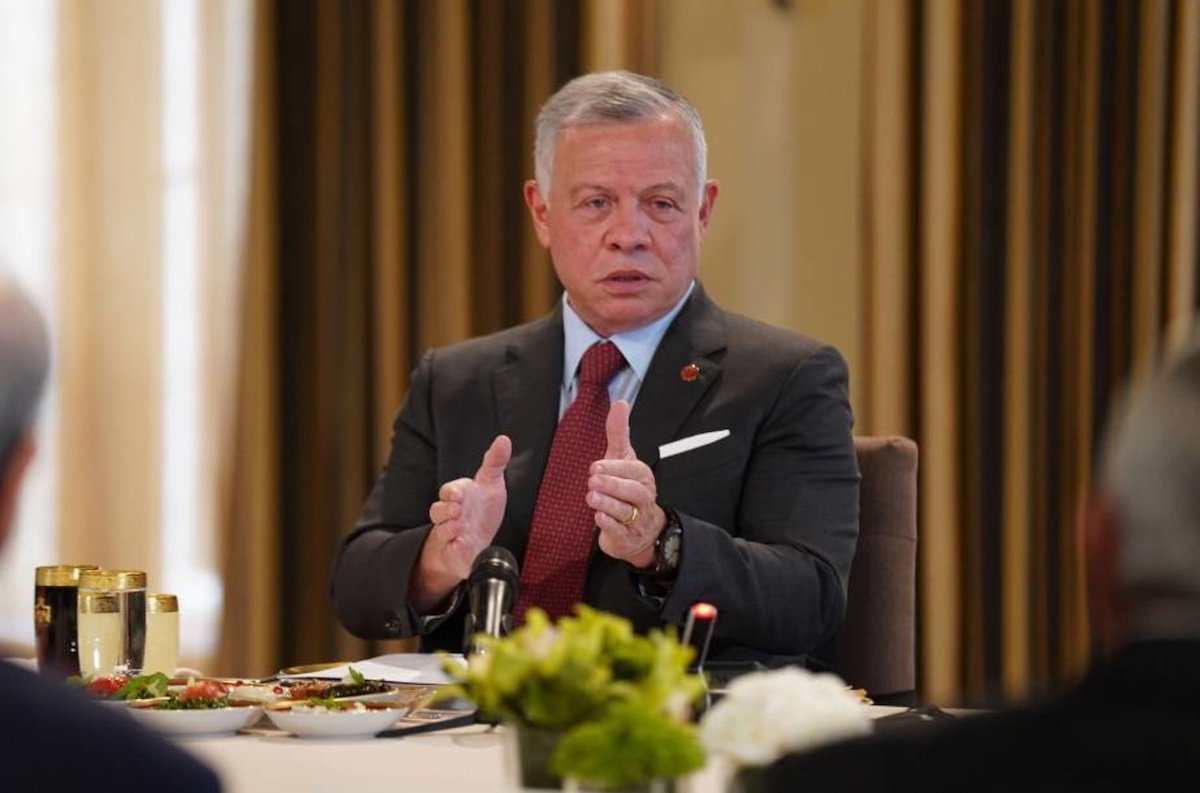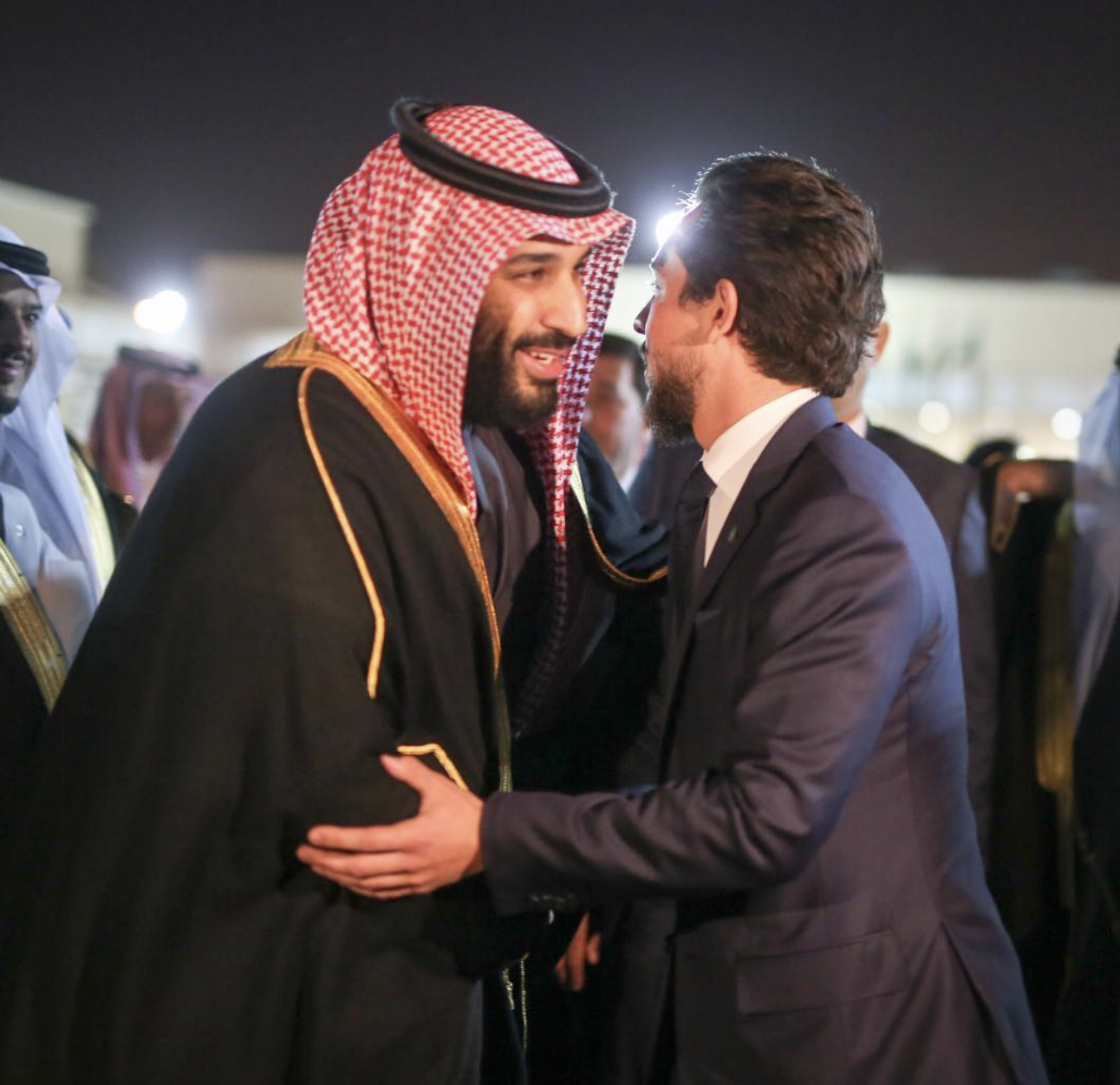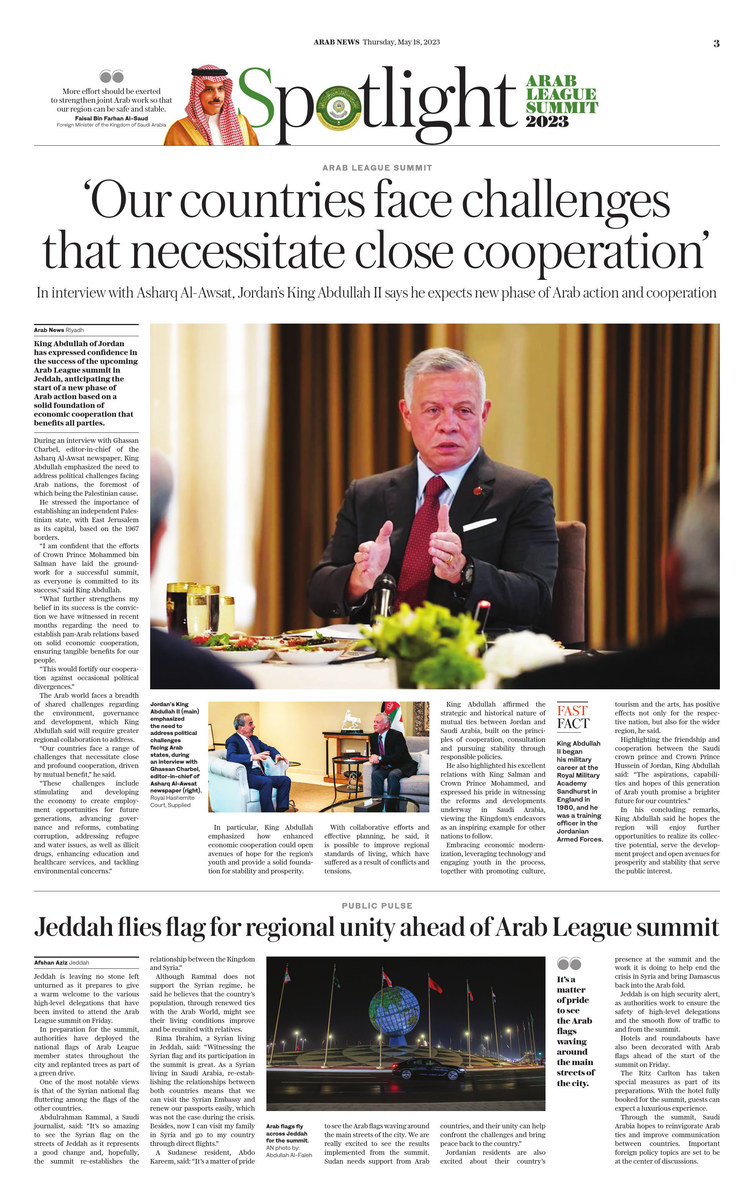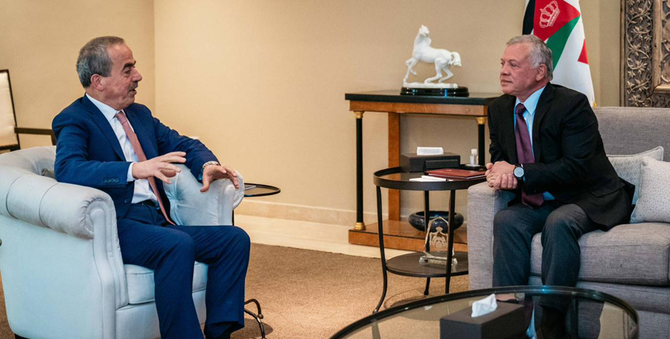RIYADH: King Abdullah II of Jordan has expressed confidence in the success of the upcoming Arab League summit in Jeddah, anticipating the start of a new phase of Arab action based on a solid foundation of economic cooperation that benefits all parties.
During an interview with Ghassan Charbel, editor-in-chief of the Asharq Al-Awsat newspaper, King Abdullah emphasized the need to address political challenges facing Arab nations, the foremost of which being the Palestinian cause.
He stressed the importance of establishing an independent Palestinian state, with East Jerusalem as its capital, based on the 1967 borders.
“I am confident that the efforts of Crown Prince Mohammed bin Salman have laid the groundwork for a successful summit, as everyone is committed to its success,” said King Abdullah.
“What further strengthens my belief in its success is the conviction we have witnessed in recent months regarding the need to establish pan-Arab relations based on solid economic cooperation, ensuring tangible benefits for our people.
“This would fortify our cooperation against occasional political divergences.”
The Arab world faces a breadth of shared challenges regarding the environment, governance and development, which King Abdullah says will require greater regional collaboration to address.
“Our countries face a range of challenges that necessitate close and profound cooperation, driven by mutual benefit,” he said.
“These challenges include stimulating and developing the economy to create employment opportunities for future generations, advancing governance and reforms, combating corruption, addressing refugee and water issues, as well as illicit drugs, enhancing education and healthcare services, and tackling environmental concerns.”

Jordan’s King Abdullah II. (The Royal Hashemite Court)
In particular, King Abdullah emphasized how deepening economic cooperation could open avenues of hope for the region’s youth and provide a solid foundation for stability and prosperity.
With collaborative effort and effective planning, he said it is possible to improve regional standards of living, which have suffered as a result of conflicts and tensions.
King Abdullah affirmed the strategic and historical nature of mutual ties between Jordan and Saudi Arabia, built on the principles of cooperation, consultation and pursuing stability through responsible policies.
He also highlighted his excellent relations with King Salman and Crown Prince Mohammed bin Salman and expressed pride in witnessing the reforms and developments underway in Saudi Arabia, viewing the Kingdom’s endeavors as an inspiring example for other nations to follow.

Saudi Arabia’s Crown Prince Mohammed bin Salman embraces Jordan’s Crown Prince Hussein. (Crown Prince Hussein)
Embracing economic modernization, leveraging technology and engaging youth in the process, together with promoting culture, tourism and the arts, has positive impacts not only for the respective nation, but also for the surrounding region, he said.
Highlighting the friendship and cooperation between the Saudi crown prince and Crown Prince Hussein of Jordan, King Abdullah said: “The aspirations, capabilities and hopes of this generation of Arab youth promise a brighter future for our countries.”
In his concluding remarks, King Abdullah said he hopes the region will enjoy further opportunities to realize its collective potential, serve the development project and open avenues for prosperity and stability that serve the public interest.




























